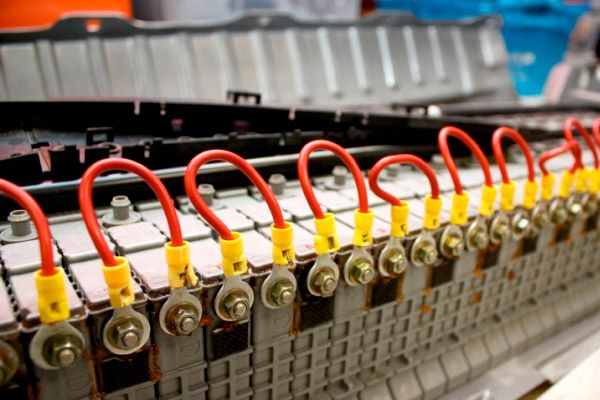New publications
Magnesium will replace lithium in batteries
Last reviewed: 02.07.2025

All iLive content is medically reviewed or fact checked to ensure as much factual accuracy as possible.
We have strict sourcing guidelines and only link to reputable media sites, academic research institutions and, whenever possible, medically peer reviewed studies. Note that the numbers in parentheses ([1], [2], etc.) are clickable links to these studies.
If you feel that any of our content is inaccurate, out-of-date, or otherwise questionable, please select it and press Ctrl + Enter.
Researchers from the Toyota Institute (North America) have proposed creating magnesium-based batteries. According to engineers, this element is quite suitable for batteries, in addition, such batteries will be safer and more efficient, in comparison with lithium-ion ones, and will be suitable for various devices - from phones to cars.
Lithium is highly flammable when exposed to air, so batteries made from it can be dangerous. To improve the safety of lithium-ion batteries, a method was used to combine lithium with graphite rods and reduce the number of ions, which contributed to a lower density and limited the amount of energy stored.
Magnesium is a more stable element, especially when interacting with air, and it is also more energy-intensive than lithium, but creating an electrolyte with magnesium that can effectively transfer energy has proven to be quite a challenge.
The situation changed dramatically when Rana Mohtadi, a senior scientist at Toyota, overheard her colleagues discussing the problems of creating an electrolyte that could transfer energy without destroying magnesium, and this led her to the idea that the properties of materials used to store hydrogen could be applied to a magnesium battery. Rana Mohtadi shared her thoughts with her colleagues, and the scientists immediately began research to test Mohtadi’s hypothesis.
According to the head of the Toyota research group, the discovery cannot be attributed to one person, but is the merit of several researchers at the institute who worked in one team. The researchers have already prepared a description of their work and published it in one of the scientific publications. Toyota engineers hope that their discovery will help other scientists develop magnesium-based batteries that are suitable for daily use and will become no less popular than lithium-ion batteries are today.

According to experts, magnesium-based batteries were unable to fully exploit their potential due to their reliance on chloride systems. Electrolytes had significant anodic stability, but the destruction of metal components caused a decrease in battery performance. Toyota specialists used boron cluster anions, monocarborane, which produce a simple type of magnesium salt that is fully compatible with metallic magnesium, and the battery demonstrated oxidative stability that significantly exceeded that of ether solvents. The passivity and non-aggressive nature of magnesium electrolyte makes it possible to standardize the testing methods for the cathode used in standard flat batteries. This discovery opens up new possibilities for researchers in the development of magnesium electrolytes and their applications.
There is still much work to be done by researchers before magnesium-based batteries can be developed, with preliminary estimates suggesting that such batteries will appear in 15 to 20 years.

 [
[